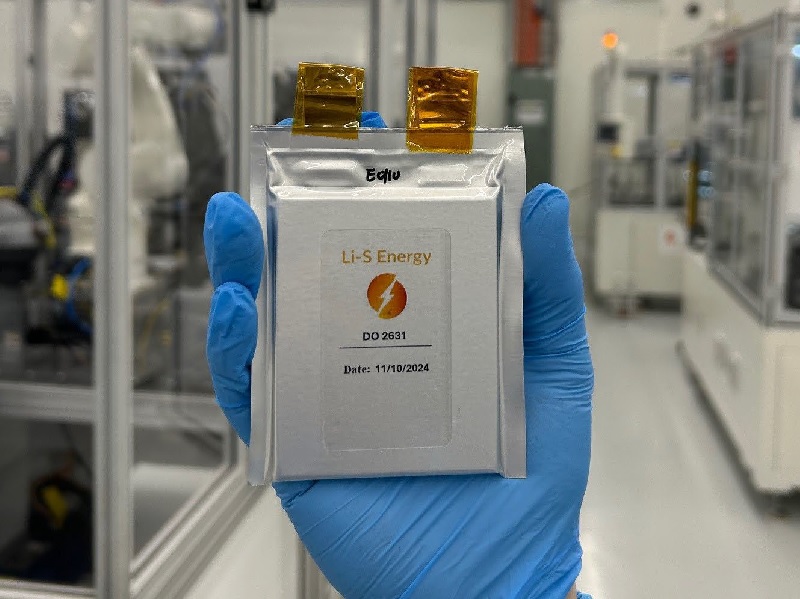Australian battery maker Li-S Energy has claimed a significant breakthrough after achieving substantial improvements to the performance of its patented lithium-sulfur technology.
The ASX-listed company on Monday said full size 10Ah semi-sold-state cells incorporating its LIS GEN3 technology managed to deliver an energy density of 498Wh/kg on first discharge and an “industry leading” 456Wh/kg after formation cycling.
The result places the company — which is targeting sectors requiring small, high energy density batteries like defence and aviation — at the “global forefront of lithium-sulfur performance”, according to Li-S Energy chief technology officer Steve Rowlands.

Li-S Energy chief executive Lee Finniear described the milestone as a “significant breakthrough for the nascent lithium-sulfur battery industry” and an “early vindication” of a strategy which has involved building Australia’s largest pouch cell production facility.
“The Phase 3 facility empowers our team to innovate at pace, being able to rapidly iterate cell design, material optimisation and production processes at scale,” Dr Finniear said in a statement.
“Our partners appreciate not only our industry leading cell performance, but also our investment in the manufacturing infrastructure required to deliver the reliable, high quality cell production vital for their future success.”
LIS GEN3 semi-solid-state cells have been built using a low-flammability electrolyte, which the Brisbane headquartered company believes make the cell safer than traditional lithium-sulfur and lithium-ion cells.
Other stated improvements include greater volumetric energy density and reduced dendrite growth — needle-like structure on the surface of lithium metal anodes that can build up as a battery is charge and discharged.
Key partners received the first test cells last month to “validate performance for aerospace battery packs integrating LIS cells and the new LIS developed intelligent battery management system”, the company said.
V-TOL Aerospace chief executive Mark Xavier said the cells “exceeded… expectations and initial requirements” for the Pegasus uncrewed air system, a joint project between the company, Li-S Energy and Halocell.
The three companies are developing a solar powered drone that can fly from dawn to dust without recharging. The federal government awarded the consortium a $1.35 million grant for the project in June.
“We anticipate cell performance at this level will generate substantial global interest and opportunity for LIS across the drone, aerospace and defence sectors,” Mr Xavier added.
Do you know more? Contact James Riley via Email.

